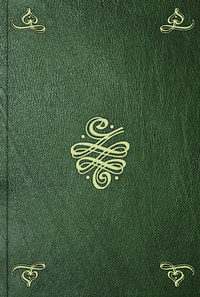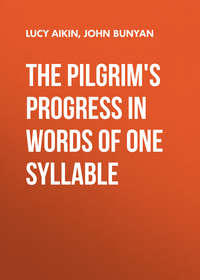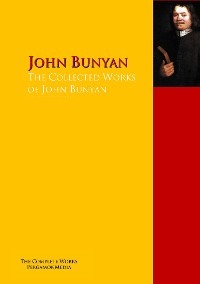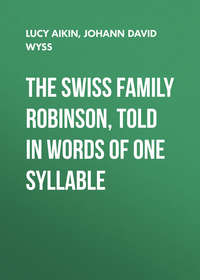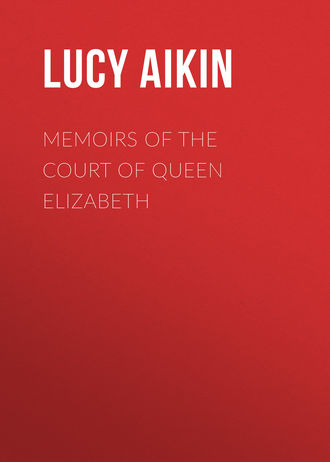 полная версия
полная версияMemoirs of the Court of Queen Elizabeth
Apprehensive lest by his longer delay her affections should be irrecoverably alienated from him by the discovery of his traitorous correspondence with Tyrone, he rashly resolved to risk yet another act of disobedience;—that of deserting without license, and under its present accumulated circumstances of danger, his important charge, and hastening to throw himself at the feet of an exasperated, but he flattered himself, not inexorable mistress. At one time he had even entertained the desperate and criminal design of carrying over with him a large part of his army, for the purpose of intimidating his adversaries; but being diverted from this scheme by the earl of Southampton and sir Christopher Blount his step-father, he embarked with the attendance only of most of his household and a number of his favorite officers, and arrived at the court, which was then at Nonsuch, on Michaelmas eve in the morning.
On alighting at the gate, covered with mire and stained with travel as he was, he hastened up stairs, passed through the presence and the privy-chambers, and never stopped till he reached the queen's bed-chamber, where he found her newly risen with her hair about her face. He kneeled and kissed her hands, and she, in the agreeable surprise of beholding at her feet one whom she still loved, received him with so kind an aspect, and listened with such favor to his excuses, that on leaving her, after a private conference of some duration, he appeared in high spirits, and thanked God, that though he had suffered many storms abroad, he found a sweet calm at home. He waited on her again as soon as he had changed his dress; and after a second long and gracious conference, was freely visited by all the lords, ladies, and gentlemen at court, excepting the secretary and his party, who appeared somewhat shy of him. But all these fair appearances quickly vanished. On revisiting the queen in the evening, he found her much changed towards him; she began to call him to account for his unauthorised return and the hazard to which he had committed all things in Ireland; and four privy-councillors were appointed by her to examine him that night and hear his answers: but by them nothing was concluded, and the matter was referred to a full council summoned for the following day, the earl being in the meantime commanded to keep his chamber. Notwithstanding the natural impetuosity of his temper, Essex now armed himself with patience and moderation, and answered with great gravity and discretion to the charges brought against him, which resolved themselves into the following articles. "His contemptuous disobedience of her majesty's letters and will in returning: his presumptuous letters written from time to time: his proceedings in Ireland contrary to the points resolved upon in England, ere he went: his rash manner of coming away from Ireland: his overbold going the day before to her majesty's presence to her bed-chamber: and his making of so many idle knights133." The council, after hearing his defence, remained awhile in consultation and then made their report to her majesty, who said she should take time to consider of his answers: meanwhile the proceedings were kept very private, and the earl continued a prisoner in his own apartment. An open division now took place between the two great factions which had long divided the court in secret. The earls of Shrewsbury and Nottingham, lords Thomas Howard, Cobham, and Grey, sir Walter Raleigh, and sir George Carew, attended on the secretary; while Essex was followed by the earls of Worcester and Rutland, lords Montjoy, Rich, Lumley, and Henry Howard; the last of whom however was already suspected to be the traitor which he afterwards proved to the patron whom he professed to love, to honor, and almost to worship. Sir William Knolles also joined the party of his nephew, with many other knights and gentlemen, and lord Effingham, though son to the earl of Nottingham, was often with him, and "protested all service" to him. "It is a world to be here," adds Whyte, "and see the humors of the place." On October the second, Essex was "commanded from court," and committed to the lord keeper, with whom he remained at York house. At his departure from court few or none of his friends accompanied him.
"His lordship's sudden return out of Ireland," says Whyte, "brings all sorts of knights, captains, officers, and soldiers, away from thence, that this town is full of them, to the great discontentment of her majesty, that they are suffered to leave their charge. But the most part of the gallants have quitted their commands, places, and companies, not willing to stay there after him; so that the disorder seems to be greater there than stands with the safety of that service." Harrington the wit and poet had the misfortune to be one of the threescore "idle knights," dubbed by the lord deputy during his short and inglorious reign, and likewise one of the officers whom he selected to accompany him in his return; and we may learn from two of his own letters, written several years subsequently, after what manner he was welcomed on his arrival by his royal godmother.
"Sir John Harrington to Dr. Still, the bishop of Bath and Wells. 1603.
"My worthy lord,
"I have lived to see that d–e rebel Tyrone brought to England, courteously favored, honored, and well-liked. O! my lord, what is there which doth not prove the inconstancy of worldly matters! How did I labor after that knave's destruction! I was called from my home by her majesty's command, adventured perils by sea and land; endured toil, was near starving, ate horse-flesh at Munster; and all to quell that man, who now smileth in peace at those that did hazard their lives to destroy him. Essex took me to Ireland, I had scant time to put on my boots; I followed with good will, and did return with the lord-lieutenant to meet ill-will; I did bear the frowns of her that sent me; and were it not for her good liking, rather than my good deservings, I had been sore discountenanced indeed. I obeyed in going with the earl to Ireland, and I obeyed in coming with him to England. But what did I encounter thereon? Not his wrath, but my gracious sovereign's ill humor. What did I advantage? Why truly a knighthood; which had been better bestowed by her that sent me, and better spared by him that gave it. I shall never put out of memory her majesty's displeasure; I entered her chamber, but she frowned and said. 'What, did the fool bring you too? Go back to your business.' In sooth these words did sore hurt him that never heard such before; but Heaven gave me more comfort in a day or two after. Her majesty did please to ask me concerning our northern journeys, and I did so well quit me of the account, that she favoured me with such discourse that the earl himself had been well glad of. And now doth Tyrone dare us old commanders with his presence and protection." &c.134
"Sir John Harrington to Mr. Robert Markham, 1606.
"My good cousin,
"Herewith you will have my journal, with our history during our march against the Irish rebels. I did not intend any eyes should have seen this discourse but my own children's; yet alas! it happened otherwise; for the queen did so ask, and I may say, demand my account, that I could not withhold showing it; and I, even now, almost tremble to rehearse her highness' displeasure hereat. She swore by God's son, we were all idle knaves, and the lord deputy worse, for wasting our time and her commands in such-wise as my journal doth write of.
"I could have told her highness of such difficulties, straits, and annoyance, as did not appear therein to her eyes, nor, I found, could be brought to her ear; for her choler did outrun all reason, though I did meet it at a second hand. For what show she gave at first to my lord deputy at his return, was far more grievous, as will appear in good time.
"I marvel to think what strange humors do conspire to patch up the natures of some minds. The elements do seem to strive which shall conquer and rise above the other. In good sooth our late queen did infold them all together. I bless her memory for all her goodness to me and my family; and now will I show you what strange temperament she did sometimes put forth. Her mind was oftimes like the gentle air that cometh from the westerly point in a summer's morn; 'twas sweet and refreshing to all around her. Her speech did win all affections, and her subjects did try to show all love to her commands; for she would say, her state did require her to command what she knew her people would willingly do from their own love to her. Herein did she show her wisdom fully; for who did choose to lose her confidence; or who would withhold a show of love and obedience, when their sovereign said it was their own choice, and not her compulsion? Surely she did play well her tables to gain obedience thus without constraint; again could she put forth such alterations, when obedience was lacking, as left no doubtings whose daughter she was. I say this was plain on the lord deputy's coming home, when I did come into her presence. She chafed much, walked fastly to and fro, looked with discomposure in her visage; and I remember, she catched my girdle when I kneeled to her, and swore, 'By God's son I am no queen, that man is above me;—who gave him command to come here so soon? I did send him on other business.' It was long before more gracious discourse did fall to my hearing; but I was then put out of my trouble, and bid go home. I did not stay to be bidden twice; if all the Irish rebels had been at my heels, I should not have made better speed, for I did now flee from one whom I both loved and feared too135."
The fate of Essex remained long in suspense; while several little circumstances seemed to indicate the strength of her majesty's resentment against him; especially her denying, to the personal request of lady Walsingham, permission for the earl to write to his countess, her daughter, who was in childbed and exceedingly troubled that she neither saw nor heard from her husband; and afterwards her refusing to allow his family physician access to him, though he was now so ill as to be attended by several other physicians, with whom however Dr. Brown was permitted to consult. At the same time it was given out, that if he would beg his liberty for the purpose of going back to Ireland, it would be granted him;—but he appeared resolute never to return thither, and professed a determination of leading henceforth a retired life in the country, free from all participation in public affairs.
Pamphlets were written on his case, but immediately suppressed by authority, and perhaps at the request of the earl himself, whose behaviour at this time exhibited nothing but duty and submission. His sister lady Rich, and lady Southampton, quitted Essex house and went into the country, because the resort of company to them had given offence. He himself neither saw nor desired to see any one. His very servants were afraid to meet in any place to make merry lest it might be ill taken. "At the court," says Whyte, "lady Scrope is only noted to stand firm to him, for she endures much at her majesty's hands because she daily does all kind offices of love to the queen in his behalf. She wears all black; she mourns and is pensive, and joys in nothing but in a solitary being alone. And 'tis thought she says much that few would venture to say but herself." This generous woman was daughter to the first lord Hunsdon, and nearly related both to the queen and to Essex. She was sister to the countess of Nottingham who is believed to have acted so opposite a part.
About the middle of October strong hopes were entertained of the earls enlargement; but it was said that "he stood to have his liberty by the like warrant he was committed." The secretary was pleased to express to him the satisfaction that he felt in seeing her majesty so well appeased by his demeanor, and his own wish to promote his good and contentment. The reasons which he had assigned for his conduct in Ireland appeared to have satisfied the privy-council and mollified the queen. But her majesty characteristically declared, that she would not bear the blame of his imprisonment; and before she and her council could settle amongst them on whom it should be made to rest, a new cause of exasperation arose. Tyrone, in a letter to Essex which was intercepted, declared that he found it impossible to prevail on his confederates to observe the conditions of truce agreed upon between them; and the queen, relapsing into anger, triumphantly asked if there did not now appear good cause for the earl's committal? She immediately made known to lord Montjoy her wish that he should undertake the government of Ireland; but the friendship of this nobleman to Essex, joined with a hope that the queen might be induced to liberate him by a necessity of again employing his talents in that country, induced Montjoy to excuse himself. The council unanimously recommended to her majesty the enlargement of the prisoner; but she angrily replied, that such contempts as he had been guilty of ought to be openly punished. They answered, that by her sovereign power and the rigor of law, such punishment might indeed be inflicted, but that it would be inconsistent with her clemency and her honor; she however caused heads of accusation to be drawn up against him. All this time Essex continued very sick; and his high spirit condescended to supplications like the following.
"When the creature entereth into account with the Creator, it can never number in how many things it needs mercy, or in how many it receives it. But he that is best stored, must still say da nobis hodie; and he that hath showed most thankfulness, must ask again, Quid retribuamus? And I can no sooner finish this my first audit, most dear and most admired sovereign, but I come to consider how large a measure of his grace, and how great a resemblance of his power, God hath given you upon earth; and how many ways he giveth occasion to you to exercise these divine offices upon us, that are your vassals. This confession best fitteth me of all men; and this confession is most joyfully and most humbly now made by me of all times. I acknowledge upon the knees of my heart your majesty's infinite goodness in granting my humble petition. God, who seeth all, is witness, how faithfully I do vow to dedicate the rest of my life, next after my highest duty, in obedience faith and zeal to your majesty, without admitting any other worldly care; and whatsoever your majesty resolveth to do with me, I shall live and die
"Your majesty's humblest vassal,"Essex."The earl abased himself in vain; those courtiers who had formerly witnessed her majesty's tenderness and indulgence towards him, now wondered at the violence of her resentment; and somewhat of mystery still involves the motives of her conduct. At one time she deferred his liberation "because she heard that some of his friends and followers should say he was wrongfully imprisoned:" and the French ambassador who spoke for him, found her very short and bitter on that point. Soon after, however, on hearing that he continued very sick and was making his will, she was surprised into some signs of pity, and gave orders that a few of his friends should be admitted to visit him, and that he should be allowed the liberty of the garden. Alarmed at these relentings, Raleigh, to whose nature the basest court arts were not repugnant, thought proper to fall sick in his turn, and was healed in like manner by a gracious message from the queen. The countess of Essex was indefatigable in her applications to persons in power, but with little avail; all that was gained for the dejected prisoner was effected by the intercession of some of the queen's favorite ladies, who obtained leave for his two sisters to come to court and solicit for him. Soon after, the storm seemed to gather strength again;—a warrant was made out for the earl's committal to the Tower, and though it was not carried into force, "the hopes of liberty grew cold." About the middle of November lord Montjoy received orders to prepare for Ireland.
The appearance of the first part of a history in Latin of the life and reign of Henry IV. by sir John Hayward, dedicated to the earl of Essex, was the unfortunate occasion of fresh offence to the queen; the subject, as containing the deposition of a lawful prince, was in itself unpalatable; but what gave the work in her jealous eyes a peculiar and sinister meaning was an expression addressed to the earl which may be thus rendered: "You are great both in present judgement and future expectation."
Hayward was detained a considerable time in prison; and the queen, from an idle suspicion that the piece was in fact the production of some more dangerous character, declared that she would have him racked to discover the secret. "Nay, Madam," answered Francis Bacon, "he is a Doctor; never rack his person, but rack his style. Let him have pen, ink and paper, and help of books, and be enjoined to continue the story where it breaketh off; and I will undertake, by collating the styles, to judge whether he were the author or no." And thus her mind was diverted from this atrocious purpose!
Measures had now been carried too far against the earl to admit of his speedy restoration to favor, whatever might be the secret sentiments of her majesty in his behalf; and her conduct respecting him preserved a vacillating and undecided character which marks the miserable perplexity of her mind, no longer enlightened by the clear and dispassionate judgement of Burleigh.
On one occasion she spoke of the earl with such favor as greatly troubled the opposite party. Soon after, on his sending to her his patents of master of the horse and master of the ordnance, she immediately returned them to him; and at the same time his lady had leave to visit him. Two days after, the queen ordered a consultation of eight physicians upon his case, who gave little hope of his life, but earnestly recommended that his mind should be quieted; on which, unable longer to conceal her feelings, she sent Dr. James to him with some broth and the message, that he should comfort himself, and that if she might consistently with her honor she would visit him; and it was noted that she had tears in her eyes as she spoke.
But it was soon after hinted to her, that though divines watched by the bed of the earl and publicly prayed for him in their pulpits, some of them "with speeches tending to sedition," his life was in no real danger. On this, she refused his sisters, his son, and his mother-in-law permission to visit him, and ceased to make inquiries after his health, which was in no long time restored. A rich new year's gift, which was sent "as it were in a cloud no man knew how," but thought to come from the earl, was left for some time in the hands of sir William Knolles, as neither accepted nor refused, but finally rejected with disdain on some new accession of anger. Yet the letters of lady Rich in his behalf were read, and her many presents received, as well as one from the countess of Leicester.
Lady Essex was now restrained for a time from making her daily visits to her husband, and the queen declared her intention of bringing him before the Star-chamber; but on his writing a very submissive letter, which was delivered by the secretary, the design was dropped; and the secretary, who had been earnest in his intercession with her majesty to spare this infliction, gained in consequence much credit with the public. About the middle of March the earl was suffered to remove, under the superintendance of a keeper, to his own house; for which he returned thanks to her majesty in very grateful terms, saying that "this further degree of her goodness sounded in his ears as if she had said, 'Die not, Essex; for though I punish thine offence, and humble thee for thy good, yet will I one day be served again by thee.' And my prostrate soul," he adds, "makes this answer, 'I hope for that blessed day.'" Two months afterwards, however, perceiving no immediate prospect of his return to favor or to liberty, he addressed her in a more expostulating style, thus:
"Before all letters written with this hand be banished, or he that sends this enjoin himself eternal silence, be pleased, I humbly beseech your majesty, to read over these few lines. At sundry times and by several messengers, I received these words as your majesty's own; that you meant to correct, but not to ruin. Since which time, when I languished in four months sickness; forfeited almost all that I was able to engage; felt the very pangs of death upon me; and saw that poor reputation, whatsoever it was, that I had hitherto enjoyed, not suffered to die with me, but buried and I alive; I yet kissed your majesty's fair correcting hand, and was confident in your royal words. For I said unto myself, Between my ruin and my sovereign's favor there is no mean: and if she bestow favor again, she gives with it all things that in this world I either need or desire. But now, the length of troubles, and the continuance, or rather the increase, of your majesty's indignation, hath made all men so afraid of me, as mine own state is not only ruined, but my kind friends and faithful servants are like to die in prison because I cannot help myself with mine own. Now I do not only feel the intolerable weight of your majesty's indignation, and am subject to their wicked information that first envied me for my happiness in your favor and now hate me out of custom; but, as if I were thrown into a corner like a dead carcase, I am gnawed on and torn by the vilest and basest creatures upon earth. The tavern-haunter speaks of me what he lists. Already they print me and make me speak to the world, and shortly they will play me in what forms they list upon the stage. The least of these is a thousand times worse than death. But this is not the worst of my destiny; for your majesty, that hath mercy for all the world but me, that hath protected from scorn and infamy all to whom you once vowed favor but Essex, and never repented you of any gracious assurance you had given till now; your majesty, I say, hath now, in this eighth month of my close imprisonment (as if you thought my infirmities, beggary and infamy, too little punishment for me), rejected my letters, refused to hear of me, which to traitors you never did. What therefore remaineth for me? Only this, to beseech your majesty on the knees of my heart, to conclude my punishment, my misery and my life together; that I may go to my Saviour, who hath paid himself a ransom for me, and whom, methinks, I still hear calling me out of this unkind world, in which I have lived too long, and once thought myself too happy.
"From your majesty's humblest servant,"Essex."At length, the queen prepared to make an end of this lingering business; the earl's entreaties that it might not be made a Star-chamber matter were listened to, and eighteen commissioners were selected out of the privy-council, to discuss his conduct, hear his accusation and defence, and finally pronounce upon him such a censure, for it was not to be called a sentence, as they should see fit. The crown lawyers,—amongst whom Francis Bacon chose to take his place, though the queen had offered to excuse his attendance on account of the ties of gratitude which ought to have attached him to Essex,—spoke one after another in aggravation of his offence; and some of them, as the attorney-general (Coke), with great virulence of language. Next came the prisoner's defence, which he pronounced kneeling;—an attitude in which he was suffered to remain during a great part of the proceedings. He began with a humble avowal of his errors, and many expressions of penitence and humility towards her majesty; a temperate apology for particular parts of his conduct, followed; but as he was proceeding to reflect in some points on the conduct of the Irish council, and to refute the exaggerated charges of his enemies, he was interrupted by the lord keeper, who reminded him that this was not a course likely to do him good. The earl explained that he had no wish but to clear himself of disloyalty; it was answered, that with this he never had been charged. The pathetic eloquence of the noble prisoner moved many of the council to tears, and was not without its effect on his enemies themselves. The secretary, who was the first to rise in reply, even in refuting a part of his excuses, did him justice in other points, and treated him on the whole with great courtesy. Finally, it was the unanimous censure of the council, that the earl should abstain from exercising the functions of privy-councillor, earl marshal, or master of the ordnance; that he should return to his own house, and there remain a prisoner as before, till it should please her majesty to remit both this and all the other parts of the sentence.


